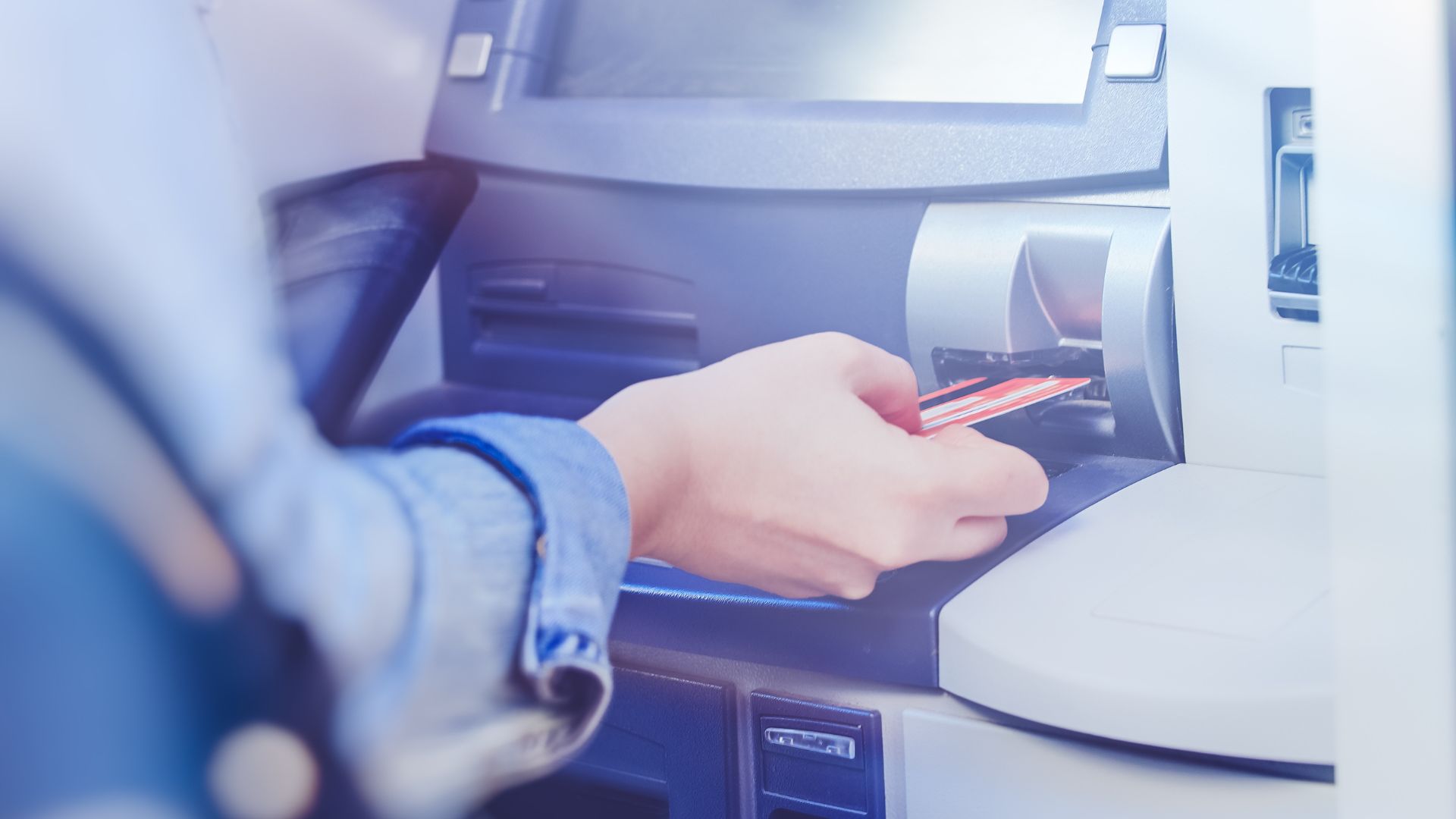Recently, you may have seen new ATMs popping up everywhere from airports to retail stores to 7/11s. These new ATMs are crypto ATMs, also known as a crypto ATM machine, cryptocurrency ATM, Bitcoin ATM (BATM) or BTM kiosk.
Crypto ATMs are standalone, internet-enabled kiosks that allow individuals to buy or sell cryptocurrencies or Bitcoin by depositing cash or, in some case, using a credit card at the terminal. Crypto ATMs and Bitcoin ATMs are not usually connected to financial institutions, banks or a person’s bank account.
ATM vs. Exchange
There are several reasons seasoned crypto investors and novice investors alike would rather use a crypto ATM than a cryptocurrency exchange. Some of those main reasons include the privacy, ownership, security and speed that crypto ATMs provide to investors as well as the opportunity for people without bank accounts to transact in cryptocurrencies.
1. Privacy
Some crypto investors appreciate that when using a crypto ATM or Bitcoin ATM the only information that is required is your name, phone number and your digital wallet. When investors use certain cryptocurrency exchanges, they may be required to enter banking and other personal information in order to purchase or sell cryptocurrencies. By using crypto ATMs, it avoids the input of such private, personal information.
2. Ownership
When using a crypto ATM or Bitcoin ATM, the user has complete control over their coins. The nature of a transaction made using a crypto ATM is that buying or selling a cryptocurrency is made directly with the user’s digital wallet. This means there is no intermediary like a cryptocurrency exchange that would hold the user’s coins until they transfer them to a digital or cold wallet
3. Security
Crypto exchanges require that users input a certain amount of personal, sensitive information like banking and identity verification information. Additionally, exchanges have a history of being hacked. Crypto investors should know that if they keep any sort of cryptocurrency on an exchange as well as any personal data stored on an exchange, there is always the possibility the exchange could become compromised and thus result in a loss of cryptocurrency investments and exposure of personal data (e.g., identity, bank accounts). Crypto and Bitcoin ATMs, however, have an inherent layer of security as they do not require the storage or much input of personal information and the transactions are made directly to a digital wallet where coins can be secured
4. Speed
At times, cryptocurrency exchanges can experience downtime if there is a large volume of traffic to the sites. These downtimes do not allow investors to purchase or sell crypto as quickly as they would like, especially when the market is hot. Crypto and Bitcoin ATMs, on the other hand, do not have downtimes. Transactions can be made using a crypto ATM machine in a matter of minutes, which allows crypto investors to be more strategic in their investments quickly depending on the fluctuation of the market
5. No Need for a Bank Account
For people who do not have a bank account, using a crypto or Bitcoin ATM is an attractive opportunity to become an investor in cryptocurrencies. There is very little personal information required from the user in order to use a crypto or Bitcoin ATM. Generally, the only thing a person needs to do is input their name, phone number and digital wallet QR code to transact on a crypto or Bitcoin ATM; unlike an exchange where one generally must link a bank account or banking card.
Using A Crypto ATM
Crypto ATMs and Bitcoin ATMs are connected to the internet and allow individuals to make blockchain-based cryptocurrency or Bitcoin transactions. There are two types of crypto or Bitcoin ATMs and those are unidirectional (one-way) and bidirectional (two-way). In this instance, we will explain how to use a bidirectional crypto ATM.
Should an individual want to make a crypto transaction, there are two easy steps to follow. In the first step, the individual must verify their identity. Identity verification may be done in a variety of ways depending on the crypto or Bitcoin ATM. Verification could include inputting one’s cellphone number to receive a verification code or receiving a one-time password for access or even a palm scan as identity verification.
In the second step, the individual will decide if they would like to purchase or sell crypto. If they would like to purchase, they will deposit fiat currency into the ATM and using their mobile phone they will scan a quick response code (QR code) that is linked to the individual’s digital wallet or exchange enabling the purchase of coins. If the individual would like to sell crypto, they would select how much they’d like to sell, scan the QR code to link to their digital wallet or exchange and then receive cash directly from the ATM. Once a transaction is complete, the individual will receive a paper receipt and see a record of this transaction on their digital wallet.
If a person does not have a digital wallet, a new one can be created to enable such transactions at crypto ATMs or Bitcoin ATMs.
Crypto ATMs Near You
The availability of crypto ATMs and Bitcoin ATMs have steadily increased in the United States and internationally since 2013. In a July 2021 article by Forbes, there are 17,436 crypto ATMs in the United Sates. Should a person want to use any one of those thousands of crypto ATMs in the U.S. or find one internationally, they can do so by using search tools on the internet. Listed below are a few websites that allow geographic crypto ATM or Bitcoin ATM searches:

FAQs
Which crypto ATMs are safe?
Crypto ATMs are safe in general. As long as the crypto ATM you are using is following the same process of scanning your digital wallet’s QR code to buy or sell coins and those coins are sent to or deducted from your digital wallet, then you can feel confident that the crypto ATM you are using is safe.
Can crypto ATMs be traced?
Yes, crypto ATM transactions can be traced. For example, any Bitcoin transaction that is made is recorded on the blockchain, which is a public ledger. Transaction information can be accessed by anyone who wants to view the public ledger. The Bitcoin addresses on the blockchain may not have names associated to it but should a warrant be issued and through the help of blockchain analysts, crypto investors transacting with cryptocurrencies can be identified. Additionally, if you are buying and selling cryptocurrency using a crypto ATM or exchange, you will still have to document your crypto gains and losses on your income taxes. Albeit, claiming crypto on your taxes is self-reporting, it is still a way of tracing crypto transactions.
What cryptos can I buy at a crypto ATM?
The type of cryptocurrency or cryptos you can buy at a crypto ATM depends on the crypto ATM operator. However, at many crypto ATMs you can buy and sell well known coins like Bitcoin (BTC), Ethereum (ETH), Litecoin (LTC), Dash (DASH), Dogecoin (DOGE) and Binance Coin (BNB).
How does a cryptocurrency ATM work?
Generally speaking, cryptocurrency ATMs connect to the internet and use QR codes to enable crypto transactions directly to your digital wallet. Each crypto ATM will work differently but by following the instructions on the ATM screen you can make a crypto transaction easily and quickly.
How much are Bitcoin ATM fees?
Depending on the Bitcoin ATM operator, transaction fees at Bitcoin ATMs and crypto ATMs can range between 5% and 20% of the total amount of the transaction.
For questions about crypto ATMs or to learn more about cryptocurrency, contact us today at 904-234-5653 or visit our contact page.
The information provided on this website does not, and is not intended to, constitute legal advice; instead, all information, content, and materials available on this site are for general informational purposes only. Securities law is complex and highly fact specific to any given circumstance and readers should contact an attorney for advice regarding any type of legal matter.



